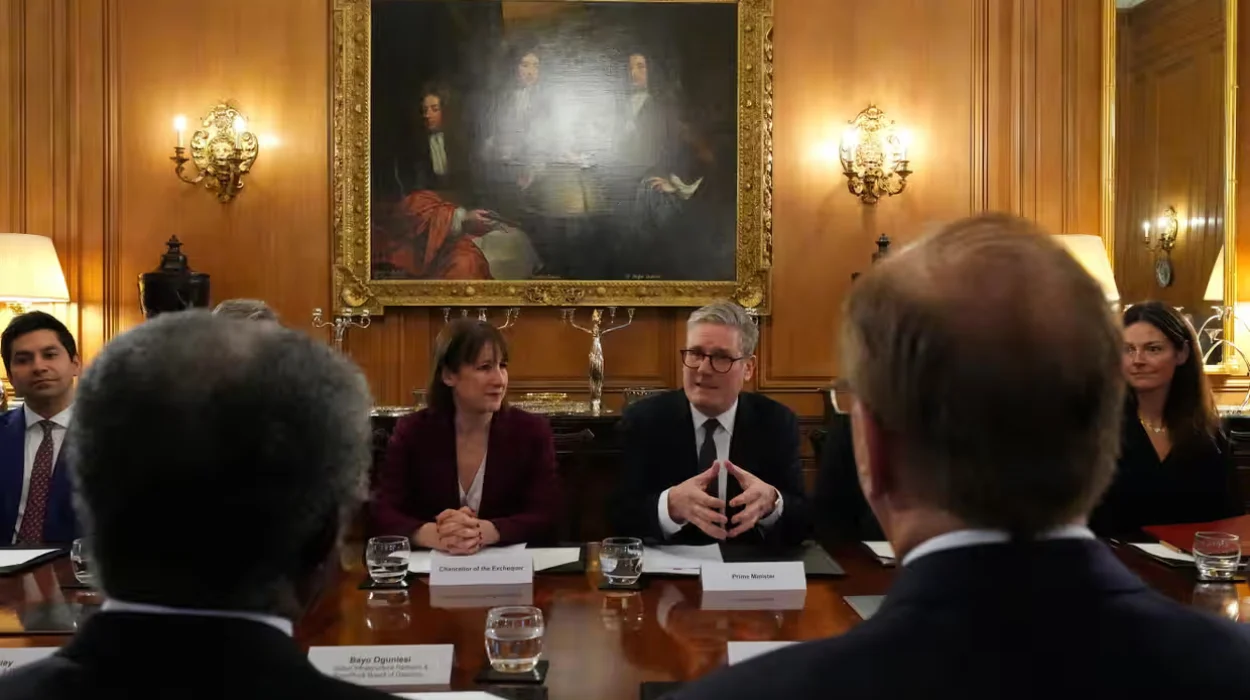UK (Parliament Politics Magazine) – Emma Pinchbeck, the UK’s chief climate adviser, urges Labour to ensure fair cost-sharing for net zero, warning that it risks losing public support.
According to the UK’s chief climate adviser, ministers should prioritize fairly spreading the costs of decarbonisation; otherwise, they may lose public support for net zero.
What did Emma Pinchbeck say about decarbonisation and economic growth?
The CEO of the Climate Change Committee (CCC) stresses that British Prime Minister Keir Starmer and Chancellor Rachel Reeves should present a ‘strong, confident’ case for decarbonisation as a driver of economic growth.
Ms Pinchbeck pointed out that political leaders from all parties are finding it tough to understand the scale and speed of the low-carbon economy, even though its potential economic benefits are clear. She also mentioned that the public is still not aware of what net zero would mean.
As reported by The Guardian, she stated,
“I would absolutely love to see the government confidently championing this agenda. They can call it what they like, but it is important that they do it.”
Reducing greenhouse gas emissions demands initial investment in renewable energy power options like wind and solar, but it results in significant future savings and better energy efficiency.
Ms Pinchbeck added,
“Decarbonisation is better for growth than not decarbonising, ”
adding,
“That’s largely to do with the efficiency of using clean energy through the economy, rather than relying on fossil fuel imports. It’s just a very much more efficient energy system.”
She stated that economic growth and net zero go hand in hand, highlighting that treating them as separate issues is misleading. Without net zero, sustainable economic growth is impossible.
Is Heathrow expansion a setback for climate goals?
Chancellor Rachel Reeves has come under fire for prioritizing economic growth over environmental concerns, backing Heathrow’s expansion and fast-tracking infrastructure projects. While she reiterated support for net zero, her focus on economic growth as the key priority has raised doubts about the government’s green agenda.
The CCC will not challenge the chancellor’s proposals, as its role is to advise on net zero goals, not enforce policies. The committee will not oppose the airport expansion but insists that any rise in emissions must be compensated by equivalent reductions in other sectors.
The Chief Executive of the CCC said, “In all sectors, fossil fuels should be replaced with low-carbon alternatives, demand reduced, or emissions captured, with aviation requiring a mix of all.”
How will the UK achieve emissions goals in the seventh carbon budget?
The fourth carbon budget in Britain, covering the period from 2023 to 2027, is currently in progress.
Next month on the 26th of February, the CCC will introduce the seventh carbon budget for the period from 2038 to 2042, which is expected to demand some of the significant emissions reductions.
Even though this new budget will begin after the current parliament, Labour will need to outline how it intends to meet the new targets and how its policies will tackle current emissions commitments, a point which has already been raised by the CCC.
While not creating policy, the CCC analyzes the pros and cons of emission targets. Its next budget will address controversial topics like airport expansion, carbon capture, and the future of hydrogen and nuclear energy.
Ms Pinchbeck, who took charge of the CCC in November, kept the report details under wraps but stressed that the new carbon budget would consider fairness and social implications of net zero.
What did net zero target mean?
Net zero refers to preventing any further additions of greenhouse gases into the atmosphere. To achieve the net zero target, the primary step is reducing greenhouse gas emissions. While some emissions cannot be fully eliminated, efforts must be made to capture those remaining.
Carbon dioxide and methane are major greenhouse gases. CO2 is emitted when burning oil, gas, and coal for industry, and transportation. However, methane comes from agricultural activities and landfills.
During the COP29 summit in Azerbaijan, Prime Minister Sir Keir Starmer set a new goal of reducing the UK’s annual emissions by 81% by 2035 compared to 1990.


